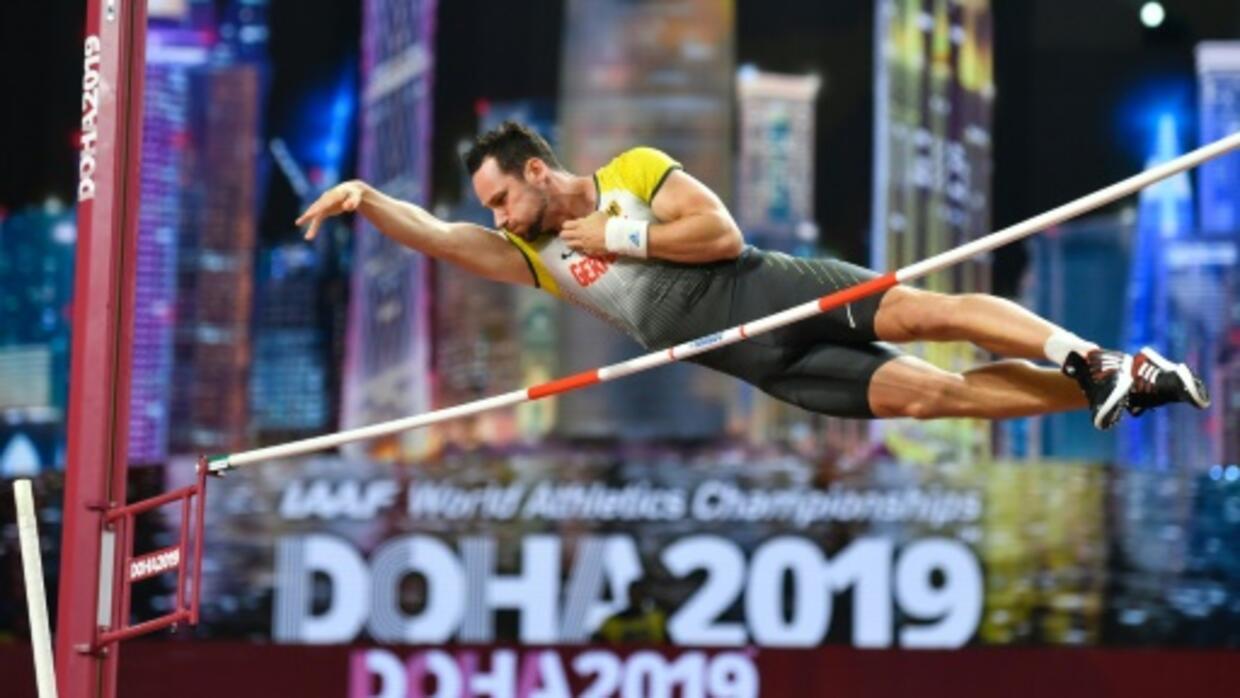Doha (AFP)
For a plural sport where fitness is essential regardless of the discipline, athletics has a paradoxical relationship with nutrition: between cutting-edge research and amateurism in practice, to the heart of its greatest competitions.
Artificial waterfall, gilding and imposing staircases, welcome to the dining room of the luxurious Al Rayyan hotel in Doha. A huge buffet allows athletes to eat as they wish for the duration of the World Athletics.
"Here the quality is good, is pleased with the AFP the boss of the team of France Patrice Gergès.By cons we eat what we are given, we do not know what is in the dishes , carbohydrate intake etc. "
As tradition in major competitions, the organizer provides the hotels specifications that guarantee diversity and quality of food. But the athletes remain at the mercy of the final result and left to their own devices, as most teams are not accompanied by a nutritionist.
"In the year we work with nutritionists, says Patrice Gergès.But in competition it is not possible in athletics because we are hosted by a hotel of the organization, with other nations, and especially because it couteait too expensive..."
- "The minimum to hold" -
Sometimes the meals turn to the disaster, as the team Euro Bydgoszcz (Poland) in August.
"I lost two pounds in four days," said AFP, the triple French champion in the 400m hurdles Aurélie Chaboudez, "I'm not difficult, but I adopt a special diet for my sport, especially in competition period [..] In Bydgoszcz, I could hardly eat anything, there was almost only starchy foods and meats in sauce, mixed meats like nuggets. "
So some athletes dry meals, or go quietly to + fast food +, a nonsense for individuals who rely primarily on their physique.
"Instead of feeding me normally I took the minimum to keep a little salad and a meat for example, insists the Franc-Comtoise.We were offered very basic things, which are based on the nutrition of there is 20 years old The big pasta dish the day before the competition is a cliché! "
At the Beijing World Championships in 2015, "athletes were getting sick, I had come with my canned food", told AFP the two-time vice-champion of the Canadian heptathlon world Brianne Theisen-Eaton, also testifying to the problems of differences cultural.
For very high level athletes, the contrast is obvious with for example Tour de France cyclists, pampered by chefs who prepare them daily different meals with fresh products and nutritional values measured to the millimeter.
- "Custom Plan" -
Paradoxically, world athletics is seriously working on the field. In April 2019, the International Federation (IAAF) published a series of scientific papers gathering current knowledge that is consensus: hundreds of pages very sharp and rich in teaching, available to all.
"In athletics, nutrition plays an important role in several areas: before and during the effort, to maintain a high energy level, then after the effort to allow the body to recover and the muscles to regenerate, explains AFP Rita Mansour, sports dietitian at the state-of-the-art Aspetar Clinic in Doha, nutrition also plays an important role in reducing the risk of injury or illness. "
"Ideally, each athlete should develop a personalized nutrition plan, tailored to their schedule, in collaboration with their coach and a professional in the sector, to optimize performance," notes the IAAF.
In practice, we are far from it, some of the best athletes sometimes belatedly aware of the importance of the subject.
"After the 2012 Olympics, I focused on nutrition, and that made a huge difference," said two-time US Olympic Decathlon Champion Ashton Eaton, "If you want to be the best you can be, you have to be interested in everything." Who's in your power Before 2012 I would not say that I lost interest in it, but I lacked knowledge One day, my god, I realized that I was working like a baby on the subject!
© 2019 AFP

